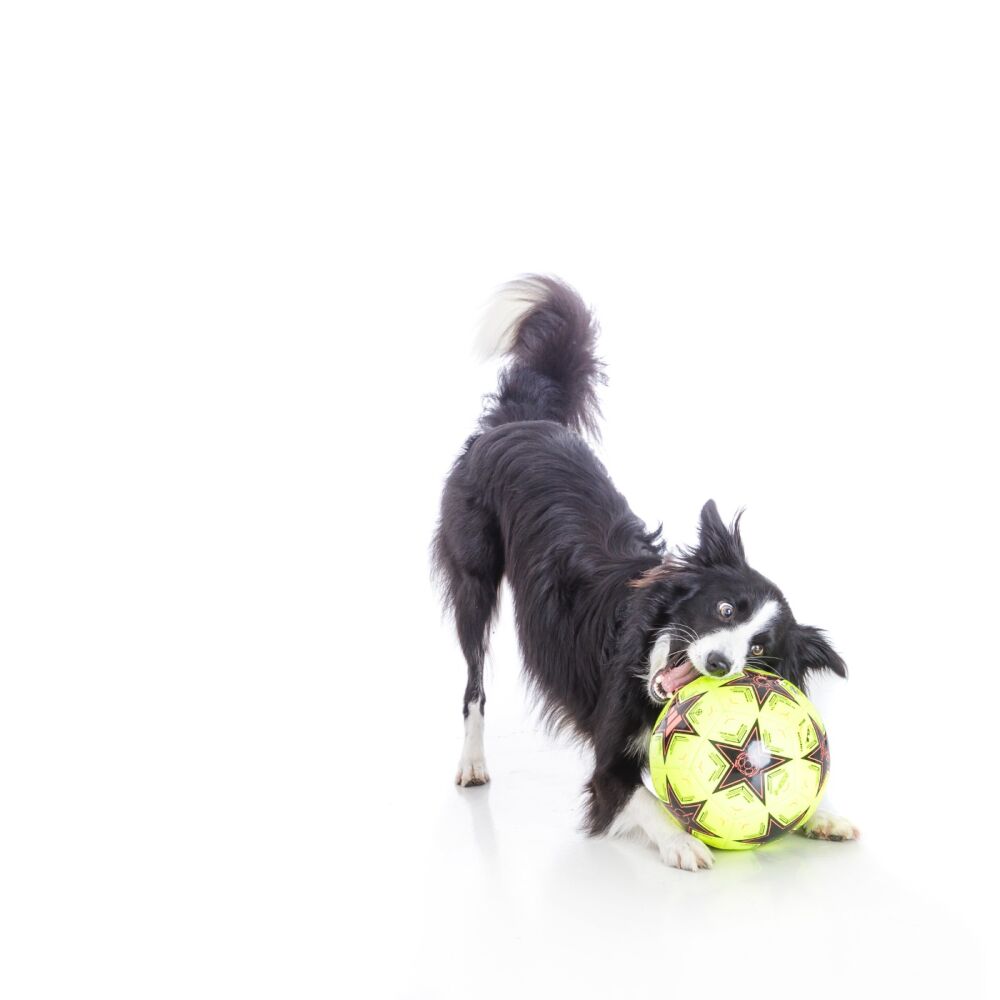
Now that people are returning the office as the UK government lifts the advice to work from home, many pets are facing more alone time than they're used to. Whether you've acquired a new pet over lockdown, or you've been spending more time with your longstanding companion, pet experts Bob Martin have some top tips to help you navigate this change.
Many people across the UK have been working from home this past year, but lots of Brits are now returning to the office as the government lifts the advice to work from home whenever possible. Going back to the office is a big change for many, and it's also a change for their pets. Many pets have become used to having their owners around all the time, and may now be prone to issues like separation anxiety, increased stress, or confusion about their routines being disturbed.
There are lots of things that you can do to help make sure your pet's mental health is prioritised throughout this time, and we've rounded up some tips here on the best things you can do.
Look at your pet's body language
While pets can't talk to us, they can tell us a lot through their body language. If your pet is irritable or unable to settle, they may be anxious, so don't assume they're just acting up. Animals are also very capable of learning our daily routine — dogs and cats especially will pay attention if they see you tie your shoe laces, or pick up your bag.
If animals are not able to self-soothe, such as with chew toys, blankets, or other distracting items, they might resort to destructive behaviour. This is often chewing or scratching furniture or other belongings. It is important to pay attention to whether your pet seems restless when you return from work, and offer them attention if they can't settle. Be patient with your pet, and try to offer toys or comforting items instead of scolding them, if they become irritable.
Develop a consistent routine
Having a daily routine that your animal companions can get used to will help them adjust when you return to the office. This keeps your pet's environment predictable. They will be able to look forward to you coming home, and understand that when you leave in the morning they can expect you to return soon.
If you have some advance notice of when you'll be returning to the office, you can also try to make the transition easier for your pet by creating a home routine similar to your commuting one. This can be particularly useful with dogs, as cats (especially if able to roam outside) tend to be more independent. However, it's good to remember that although cats can seem so independent, they can get stressed too, so it's still important to help them adjust to the new routine.
But for either of these animals, it's useful to get up, get ready for your day, and then go to a different room to work. Try shutting the door, and then reuniting with your pet after you've finished work. This way, you can introduce your pet to being alone more gradually.
Give your animals some exercise
The more energy your pets burn off, the less likely they are to engage in restless and destructive behaviour, so it's well worth making time to exercise them before leaving them alone.
This is particularly useful for active dogs. If your dog is used to having long lockdown walks, or is of an active breed or age, give them a walk before leaving for work. If your cat can go outside, make sure to let them out while you have breakfast. Indoor cats can have morning play sessions. Exercise can also help pets relax, and can keep your four-legged friend calm.
Create a comforting environment
There are lots of things that you can do to create a calming environment for your pet. This helps them self-sooth throughout the day, and will help them feel more confident about their new alone time.
Try leaving the TV or radio on so your cat or dog can hear human voices, or leaving them with a piece of your clothing or a blanket so they can smell you nearby. An added advantage of the TV or radio, is that it will dampen and distract from outside noises that might startle your nervous pet.
Leaving your pet with plenty of toys to play with will also distract them from your absence. Puzzle toys are particularly useful, as they can occupy your pooch for quite a long time, and engage their mental energy in thinking about something other than being left at home. If you're leaving a cat alone, try getting them a climbing frame and a scratching post to explore while you're away.
Leave and arrive quietly
It's useful to try to leave your house, and return home from work, as quietly as you can and with minimal fuss. This is because it lets them know that you leaving isn't anything to worry about, and keeps them calmer as they get used to their new routine.
Saying a prolonged goodbye to your pet might seem cute, but it can actually make the whole thing more stressful, and just get your animals more worked up. Likewise, when you return home, don't make a big fuss of your furry friend as soon as you open the door.
It's tempting, but try to enter the house quietly, say a calm hello to your pet, and then organise your things for the evening before giving them lots of attention. This separates your arrival from the fuss they're getting, reducing the amount that they will focus on it throughout the day.
Going back to work and leaving your four-legged friends at home can pull at your heart strings, and be stressful for both you and your pet. But, it can be a lot easier if you use some of these tips to manage your pet's anxiety. Keeping them active, giving them a consistent routine, and encouraging them to play on their own with toys can go a long way to keeping them comfortable with your change in lifestyle.



